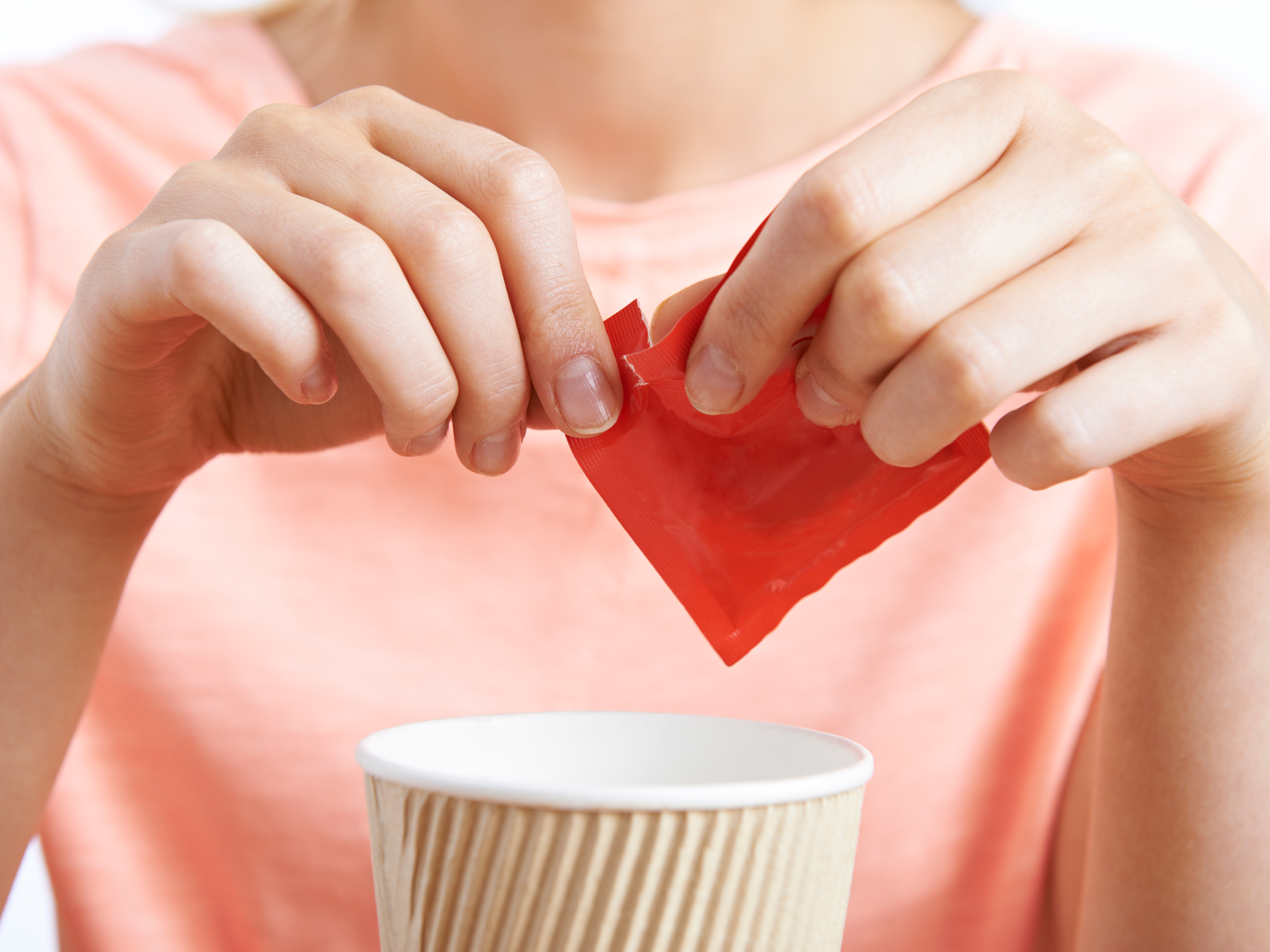Get Easy Health Digest™ in your inbox and don’t miss a thing when you subscribe today. Plus, get the free bonus report, Mother Nature’s Tips, Tricks and Remedies for Cholesterol, Blood Pressure & Blood Sugar as my way of saying welcome to the community!
Studies find not-so-sweet links between popular sweetener, cancer and diabetes

Almost forty percent of Americans were obese in 2016, up from 33.7 percent in 2008. Clearly, we as a nation are not getting the message: being overweight can kill you. Diabetes, stroke, heart disease and arthritis are direct results of carrying too much weight.
The makers of artificial sweeteners know this and have taken full advantage of the data to make a case for their products. But one after the other, “safe” artificial sweeteners have been unmasked as the health hazards they really are.
- In 1958, cyclamate was labeled GRAS (generally recognized as safe) by the FDA. In 1966, studies reported its carcinogenic effects, and in 1969 its sale was banned.
- In the 1970s, researchers found that saccharin caused bladder cancer in experimental animals. It was banned in 1981 but is being used again today in carbonated drinks and other low-calorie and sugar-free products.
- In 2017, a large study linked aspartame to increased risk of heart disease, and increased body mass index … it actually caused weight gain! In the body, aspartame breaks down to become formaldehyde. Nevertheless, it remains an FDA approved food additive.
Now, researchers are uncovering the truth about yet another sweetener you may be using. Although it, too, is FDA approved, it seems that the entire truth has yet to be told about its dangers.
Sucralose: Packets of sweet poison
Clever marketers gave this chemically-altered health hazard a name that resembles sucrose, the chemical name for sugar. Don’t be fooled: sucralose, sold under the name Splenda, is anything but safe.
Sucralose is basically chemically altered sugar. Several sugar molecules are replaced with chlorine molecules. That’s right, the same chlorine that is in your bleach, in swimming pools, and in industrial-strength cleaners.
When sucralose was FDA approved in 1999, it was largely based on claims, supposedly research-based, that it was biologically inert, meaning that it passes through the body unmetabolized and therefore has no health effects, adverse or otherwise.
Some researchers have always questioned this fact, and recently, studies have disproven it. Sucralose does, in fact, remain in the body, with some disturbing health effects.
In a 2018 study, sucralose remained in the fatty tissue of rats for two weeks after they stopped consuming it. This flies directly in the face of the scientific evidence that got sucralose approved by the FDA. These researchers state, “Data indicate that it may now be time to revisit the regulatory status of sucralose.”
Prior to this, a 2016 study from the Ramazzini Institute in Bologna, Italy, observed an increase in malignant tumors in mice as the dosage of sucralose increased. Their comments were even stronger: “More studies are necessary to show the safety of sucralose … Considering that millions of people are likely exposed, follow-up studies are urgent.”
Health hazards of sucralose
There are at least three good reasons to stop using sucralose now.
Sucralose affects the gut and promotes inflammation. A 2017 animal study uncovered a number of ways in which sucralose affects gut bacteria.
Keeping the bacteria in our gut microbiome in balance is crucial to preventing chronic inflammation, heart disease, Alzheimer’s, cancer and more.
A 2017 study from the University of Georgia presented outlined several ways in which sucralose harms our gut. Researchers found that, in mice, sucralose caused liver inflammation, and increased the number of inflammation-causing bacteria found in the animals’ feces.
The structure of amino acids, the building-block proteins that control most of our biological functions, was altered as well.
Sucralose affects blood sugar and insulin. A 2013 study at Washington University School of Medicine found that people who do not normally consume sucralose will likely experience a disruption in blood sugar levels. Clearly, this substance does not pass through the system harmlessly.
Many other symptoms have been reported by people who consume sucralose:
- Red, itchy skin
- Wheezing and breathing problems
- Swelling of face, lips, and tongue
- Bloating and stomach pain
- Anxiety, dizziness, and depression
Of course, not everyone experiences these symptoms. But is it really worth the risk?
Safer sweet alternatives
Organic cane sugar, raw unfiltered honey, and pure maple syrup are three safe, natural and wonderfully sweet alternatives to the sweetener that is chemically closer to DDT than it is to sugar.
Editor’s note: Discover how to live a cancer prevention lifestyle — using foods, vitamins, minerals and herbs — as well as little-known therapies allowed in other countries but denied to you by American mainstream medicine. Click here to discover Surviving Cancer! A Comprehensive Guide to Understanding the Causes, Treatments and Big Business Behind Medicine’s Most Frightening Diagnosis!
- Gut Microbiome Response to Sucralose and Its Potential Role in Inducing Liver Inflammation in Mice — Frontiers in Physiology
- A double‐blind placebo‐controlled study of the effectiveness and tolerability of oral stevioside in human hypertension — British Journal of Clinical Pharmacology
- Intestinal Metabolism and Bioaccumulation of Sucralose In Adipose Tissue In The Rat — Journal of Toxicology and Environmental Health, Part A
- Sucralose administered in feed, beginning prenatally through lifespan, induces hematopoietic neoplasias in male Swiss mice — International Journal of Occupational and Environmental Health












